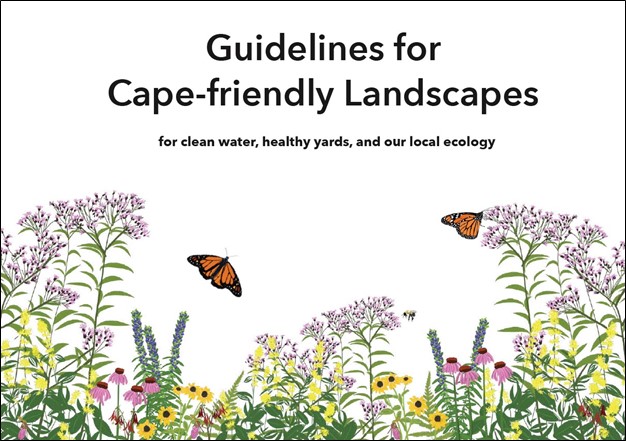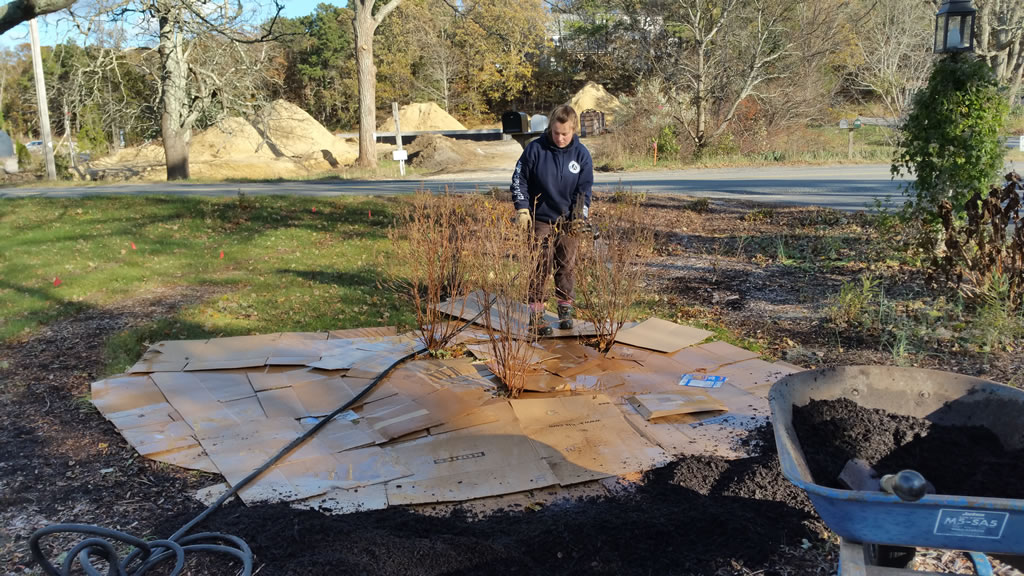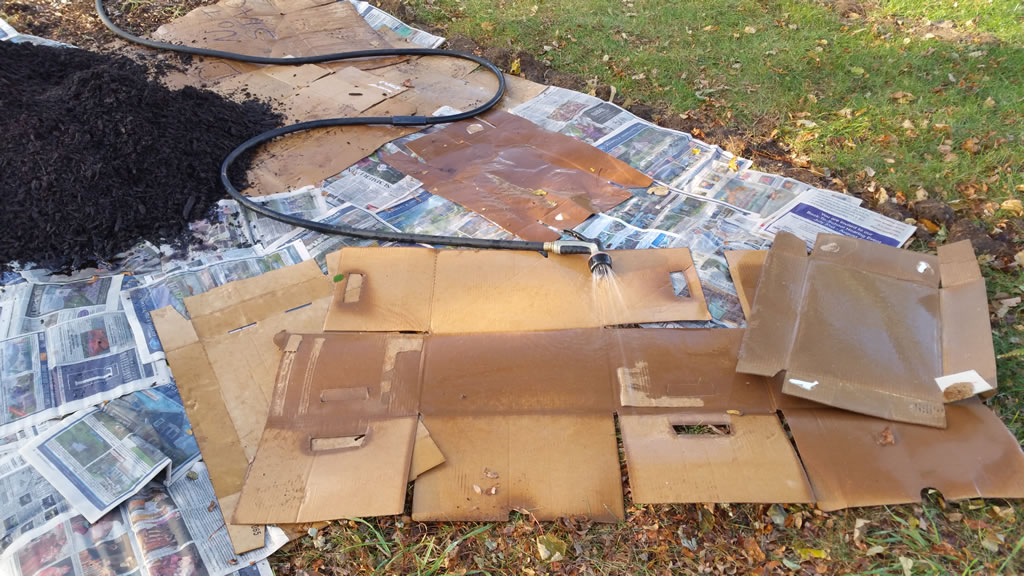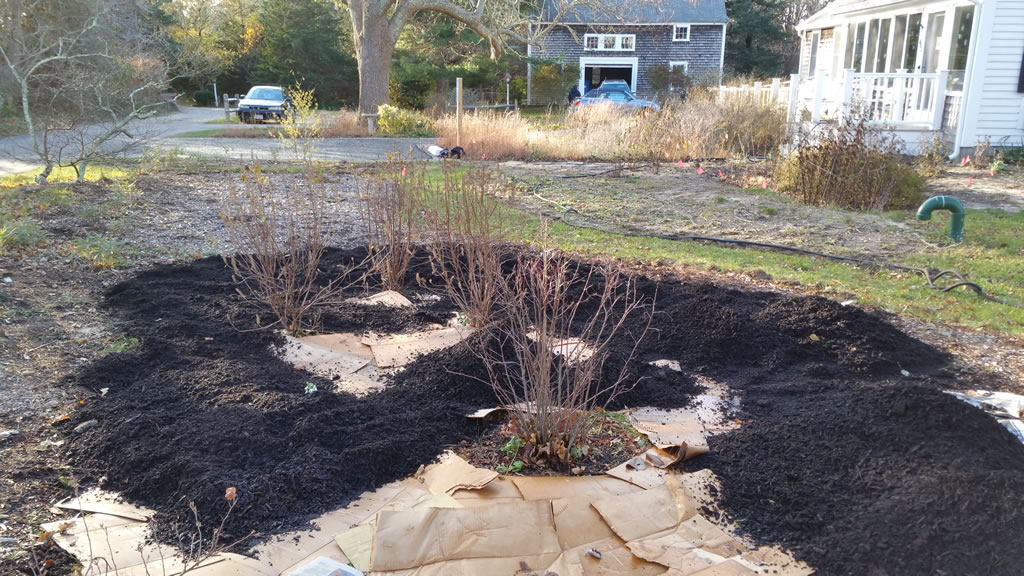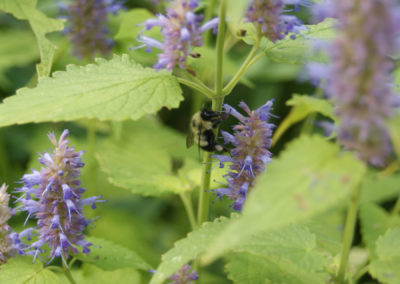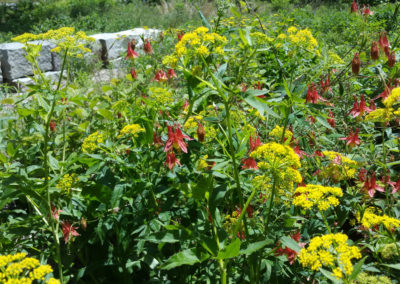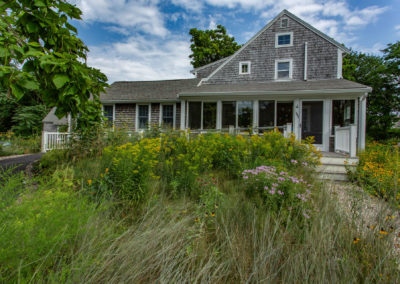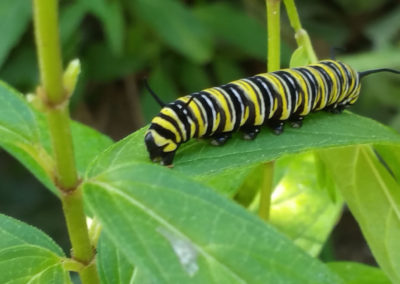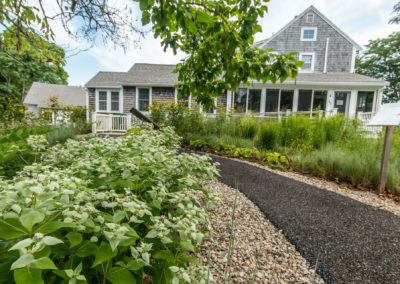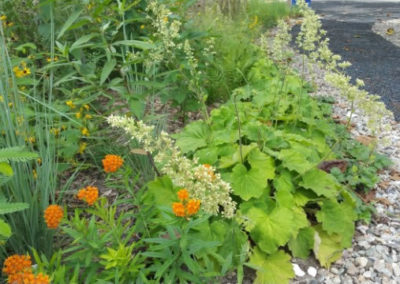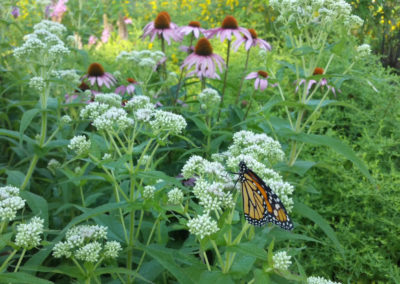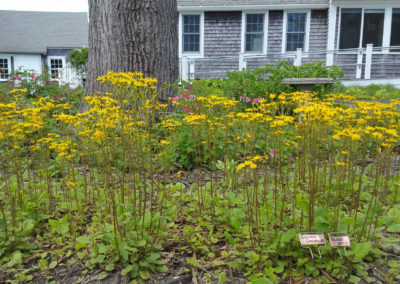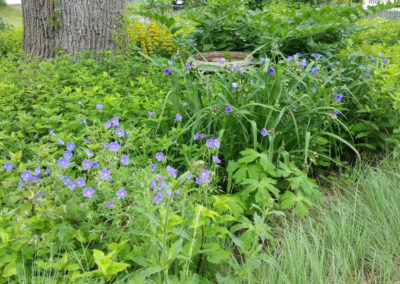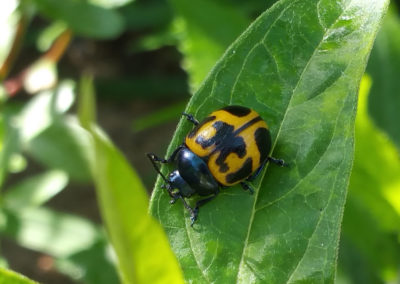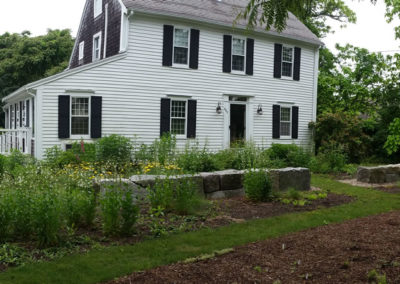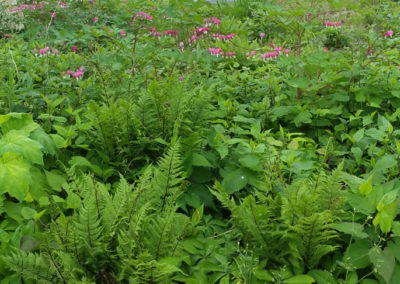Living Landscape Laboratory
APCC’s home in Dennis is also our Living Landscape Laboratory. Visitors can see and learn about ways they can use to better steward their own land: different ways to manage stormwater, displays of native plants integrated into an existing landscape, various approaches to convert lawn areas to native plantings, energy and water conservation methods, and composting and chemical-free land-care practices.
The Living Landscape Laboratory is our prime educational venue where we practice what we preach in caring for our land and water. Our environmentally friendly, sustainable practices demonstrate what you can do on your very own piece of Cape Cod.
To request a tour of the grounds, contact Kristin Andres, Associate Director for Education at [email protected].
Why Sustainability Is Important
Sustainability is the cornerstone of the environmental ethic. It means putting the environment first in everything we do by making educated choices to reduce energy and water consumption, minimize our carbon footprint, and find other ways to be good stewards of the land. Through reducing, recycling, reusing, and conserving, we place less of a burden on the environment and on our natural resources.
As we manage our office both inside and out, we make every effort to examine our choices so we can serve as an example of what it means to be carbon conscious in the landscape and live sustainably.
What We’re Doing at APCC Headquarters
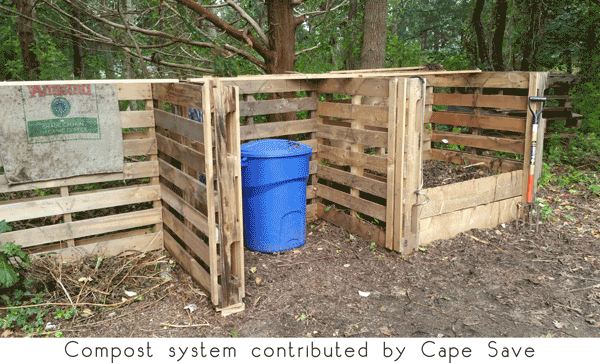
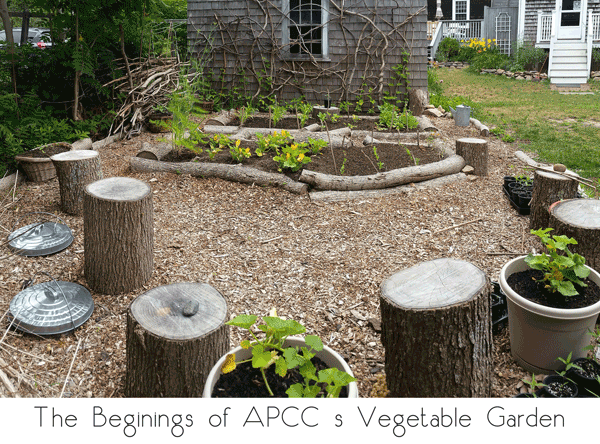
Waste Reduction: We strive to minimize office paper use by doing as much as we can digitally, only printing documents when necessary. We are also cognizant of our choices in purchasing products.
Composting: We compost all our food waste on site using a homemade anaerobic compost system. We also compost yard debris through a larger composting system made of wooden pallets.
Recycling: All recyclables are taken to the Dennis Transfer Station, and we strive for a goal of zero waste.
Reuse and Repurposing: We purchase paper products with 50% or more recycled content. Where possible, we look for used garden tools instead of purchasing new. Our vegetable garden features repurposed materials.
Water Conservation: We’ve installed several rain barrels at our gutter downspouts to catch rainwater from the roof, which we then use to water plants. Rainwater is free and is preferred by plants! Using rainwater conserves tap water. It takes energy to pull our water from the ground and to treat it with salts to adjust the pH and chlorine to kill pathogens.
Lawn Reduction—Increase Biodiversity: With the help of volunteers and BlueFlax Design, we’ve reduced lawn area in favor of diversity: native perennials and shrubs that are attractive and also support native pollinators and birds. Click here for a list of natives we’ve planted so far. Learn more about why it’s important to have more native plants in your yard in this webinar with Dr. Doug Tallamy that APCC hosted with The 300 Committee Land Trust of Falmouth in February 2020
Sustainable Gardening: Our gardens are chemical-free. We promote organic vegetable gardening and encourage local food production and recycling of nutrients by composting.
Stormwater Management: Our handicapped parking spot and path are made of porous pave®, an alternative to traditional asphalt. It’s made of recycled tires and, unlike asphalt, rainwater drains through it. This is just one type of permeable material that serves as an example of how to best manage stormwater. Instead of using traditional ways to disposing of stormwater, we want to conserve our water resource, letting the rain soak into the ground where it falls and recharge our groundwater. We even made a video about it.
Another example of how to better handle stormwater is our rain garden. A rain garden is a shallow depression planted with native plants. Here, rainwater from a gutter downspout is captured where it can slowly dissipate into the soil. The native perennials and shrubs we chose also support pollinators, other insects, birds, and wildlife. Learn more about our rain garden in this video.

